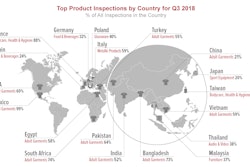As you are reading this article, someone in your corporation is treading the ethical line because of expediency, undue pressure or just because they don't know better. They may not know where they can go to obtain direction. They may be fearful of the ramifications of even asking whether the situation is ethical because they may be challenging someone in the organization that has more power than they do.
It's easy to make the "right call" when the facts are clear and the choices are unambiguous. Unfortunately, that is not where most of the ethical dilemmas facing us reside. "Right" is rarely diametrically opposed to "wrong." Many situations are clouded with uncertainty, incomplete information, multiple points of view, contradictory responsibilities and pressure — external or self imposed.
Ethics are not bottom-up in the enterprise. They are determined by the actions from the top leadership on down. If bending the rules results in accolades because of increased short-term revenue or other perceived benefit, many in the business will rightly believe that ethics don't matter, performance does — that is, of course, until the story appears on the front page of the paper, which is when the organizational navel-gazing commences.
Procurement is a hotbed of ethical challenges because the decisions and choices made in procurement affect the entire corporation. Procurement teams have processes ensuring that fair and objective decisions are made. Other areas of the corporation may have other agendas. Yet if Procurement waivers on its ethical foundation, it begins a slide down the slippery ethical slope.
How can we protect our organizations from rogue spending, flawed reciprocal business awards, conflicts of interest and a myriad of other issues?
Have all suppliers been vetted through the same process, or have some been given preference because of whom they know? When evaluating a potential supplier, is there a process in place that ensures that all potential conflicts of your evaluation team are known? Is there a requirement to complete a full-disclosure form and get the potential supplier to do the same as well?
Full disclosure ensures that everyone knows whether anything was provided to the evaluation members, such as fact-finding trips to meet with current clients or to a manufacturing facility, or whether an evaluation team member has any pre-existing relationships that could affect his or her impartiality. What inherently the full disclosure does is ensure that you are making decisions with complete information. It doesn't mean that you eliminate a supplier if any areas of concern are noted; it just signifies that you have all information available to make an objective decision. It also ensures that your decisions are defendable!
How well do you know your current vendors? What kind of due diligence do you perform on potential suppliers? Do you ensure that a profile identifying key aspects of each relationship is completed and that a vendor cannot be paid unless this is on file? Such a requirement would most definitely cut down on rogue spending and reduce the ethical risk.
In the book Blink, Malcolm Gladwell writes interestingly about how we can utilize our inherent intuitive nature to know if something "feels" right or wrong, how we pick up clues intuitively, without thinking. If we look back at those times when we have made decisions that, in hindsight, we would decide differently now, most of us would agree that we "felt" that it wasn't quite right.
Remember that feeling, because it takes a lifetime to build up a reputation, but only a moment — the blink of an eye — to destroy it.











